(Vertaling: E.J. Bron)
Afgelopen weekend organiseerde de patriottische Identitaire Beweging Duitsland op de hoofdstations in Hamburg, Frankfurt en München acties om tegen de asielpolitiek van de regering te protesteren. De activisten bekritiseerden daarbij gevolgen die voortkomen uit de politiek van de open grenzen en een buiten zijn oevers tredende “welkomstcultuur”.

Eerst lieten de Identitairen de “Refugees Welcome”-affiches zien waarmee vorig jaar de “welkomstcultuur” van de asielactivisten werd ondersteund. Voorbijgangers, die de enscenering voor echt hielden, applaudisseerden eerst voor de zogenaamde asielactivisten. Toen de Identitaire Beweging de situatie veranderde en asiel-kritische affiches liet zien, verstomde de instemming van de voorbijgangers.
De Identitairen motiveerden hun acties op de stations op haar Facebook-pagina: “De asielcrisis is helemaal niet voorbij, en de zuigende werking van de opnamebeloftes van Merkel en de groteske beelden van applaudisserende mensen werken nog altijd als een magneet op diegenen uit alle werelddelen die een zwaar leven hebben en op zoek gaan naar welvaart. Juist de stations vormen hierbij het kristallisatiepunt, want zij zijn het draai- en angel-punt van de actuele crisis, zijn enerzijds zowel het etappedoel van de naar ons toestromende migranten als anderzijds ook het toneel van hysterische naïeve welkomstceremonies, die in het kader van de aanslagen van Parijs en Brussel en de overvallen in Keulen en Hamburg een farce bleken te zijn.”
De geïrriteerde reacties van de voorbijgangers op deze acties werden eveneens door de Identitairen becommentarieerd: “De verrassende ommekeer en het openlijk scanderen van de protesthouding tegen deze politiek schudde de reizigers wakker uit hun multiculturele dagdromen en ontmaskerden het drama.”
Bron:
http://zuerst.de
Vertaald uit het Duits door:
E.J. Bron
(www.ejbron.wordpress.com)



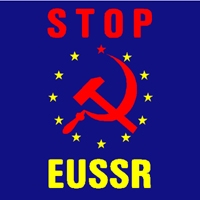




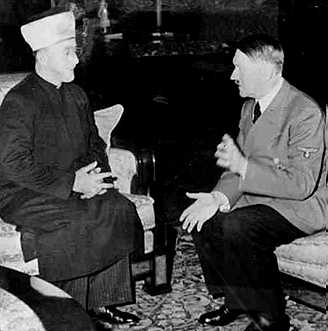
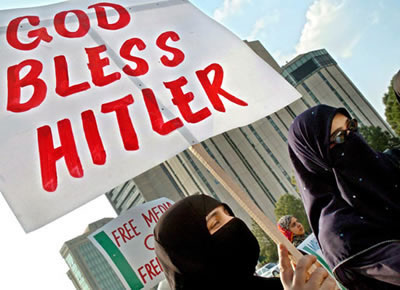






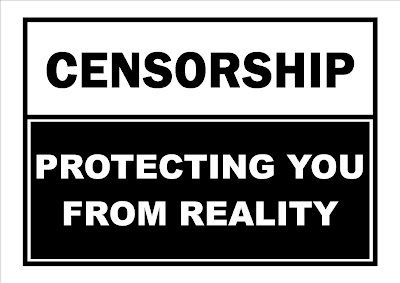





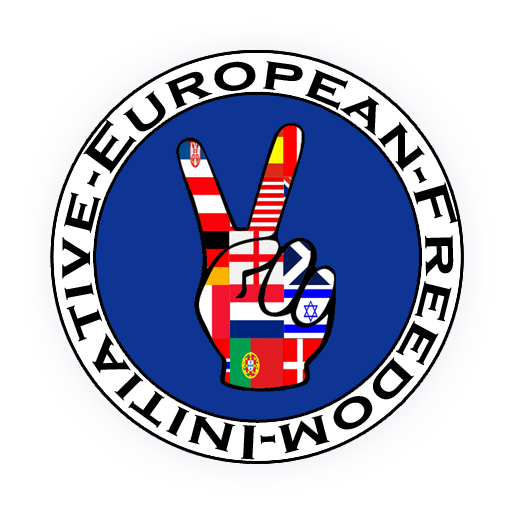






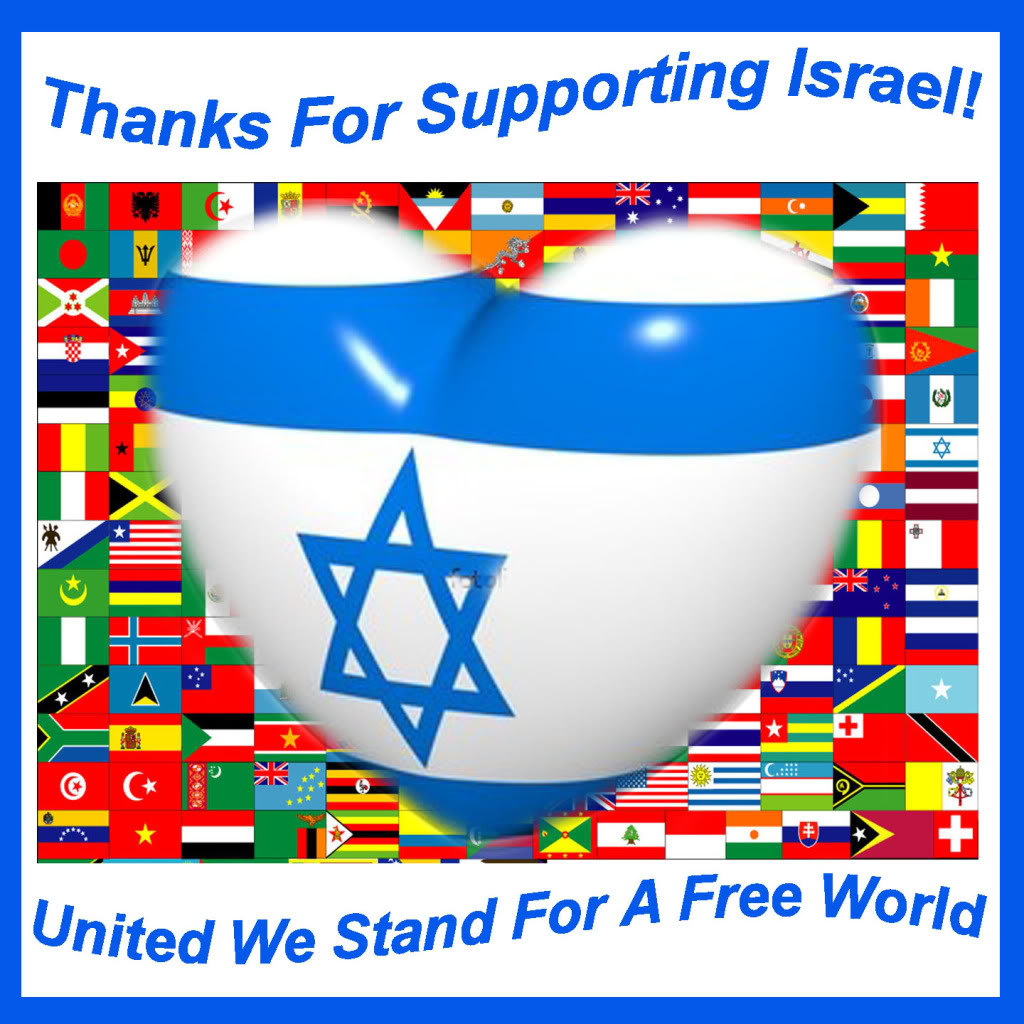


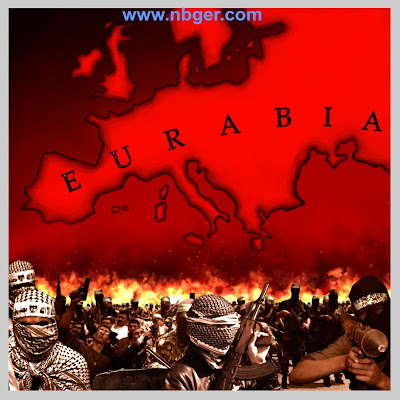

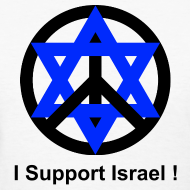

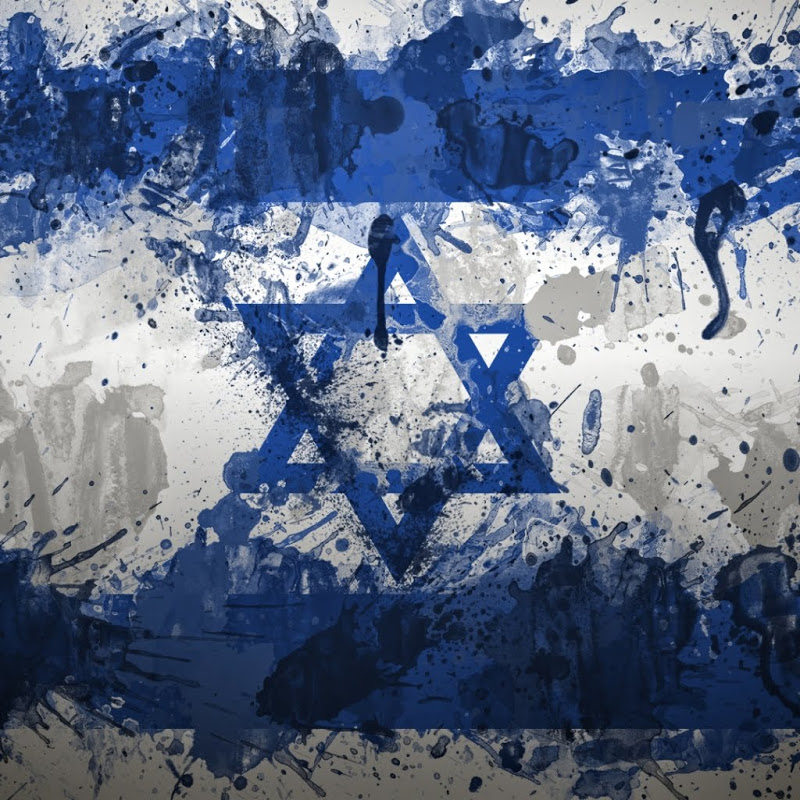

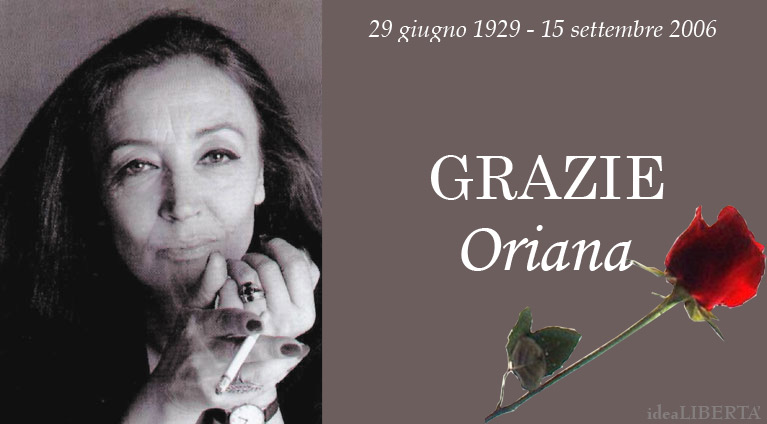




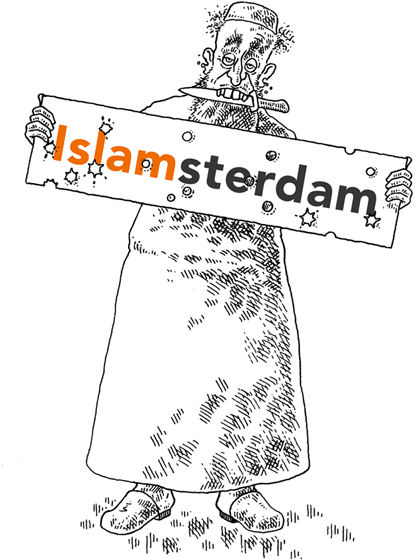

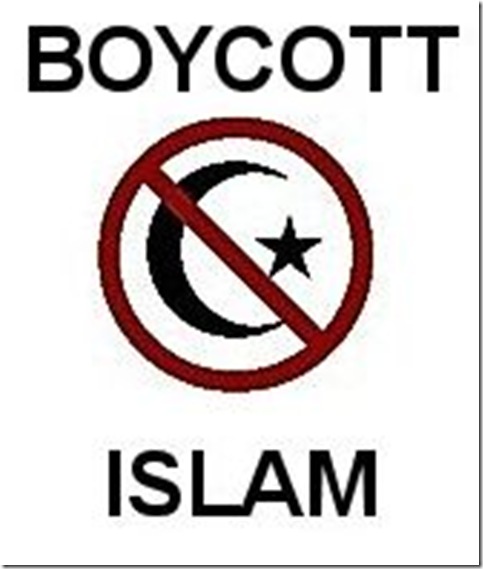



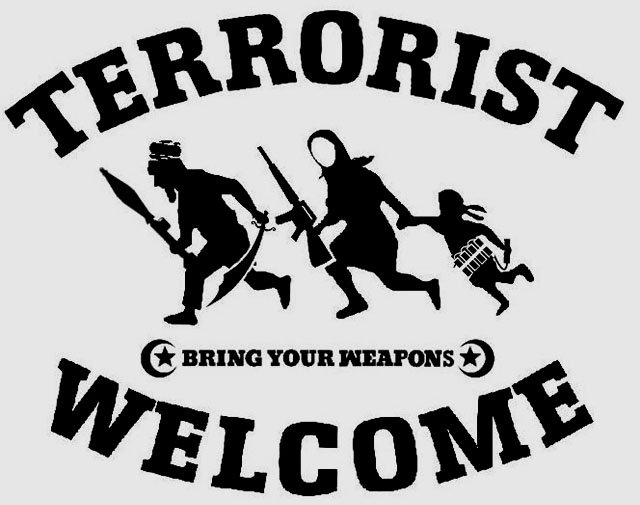
After becoming clear that Theresa May is the only candidate for the head of the Conservative party, the resigned British prime minister said that he would leave his position on Wednesday and that May receives his full support.
May strongly objected leaving the EU, but made very clear that she will abide by the voters’ decision: “Brexit means Brexit – as prime minister, I will make sure that we leave the EU or rejoin through the back door.”
http://www.jerusalemonline.com/news/world-news/around-the-globe/new-pm-for-britain-by-wednesday-22281
Sharia Enforcer Theresa May to be new UK Prime Minister
http://pamelageller.com/2016/07/sharia-enforcer-theresa-may-to-be-new-uk-prime-minister.html/
LikeLike
http://www.dailystar.co.uk/news/latest-news/529239/theresa-may-new-prime-minister-tory-party-leader-speaks
LikeLike
“Brexit means Brexit – as prime minister, I will make sure that we leave the EU or rejoin through the back door.”
Ik vermoed dat die May het laatste zal proberen, ofwel via de achterdeur weer naar binnen gaan. Ik vertrouw haar helemaal niet.
Trouwens, weten we al allemaal dat fase 3 van de islamitische overname van het westen sinds enige tijd begonnen is ?
Zie de volgende link:
Stadia naar een volledige overname.
We zitten dus al over de 50% heen. In fase 3 gaat binnenkort het echt gore werk beginnen.
LikeLike
Zijn ze wakker geschrokken?
LikeLike
Nou, dan zijn ze daar méér dan hier:
Ingrid, met wie ik een actie’tje probeer te plannen, heeft al een poging gedaan om met ze in contact te komen, maar vooralsnog lijken ze wel in coma!
Tamelijk wezenloze figuren , dat Nederlandse ID-Verzet, vrees ik: Ik kreeg al eerder die indruk.
LikeGeliked door 1 persoon
Maxima had gelijk. Nederlanders hebben geen identiteit. Laat staan ID-Verzet.
LikeLike
DIT IS EEN VAN DE BESTE STUKKEN DIE IK GELEZEN HEBT IN LANGE TIJD .
The Arabs’ Historic Mistakes in Their Interactions with Israel
by Fred Maroun
July 10, 2016 at 5:00 am
We Arabs managed our relationship with Israel atrociously, but the worst of all is the ongoing situation of the Palestinians. Our worst mistake was in not accepting the United Nations partition plan of 1947.
Perhaps one should not launch wars if one is not prepared for the results of possibly losing them.
The Jews are not keeping the Arabs in camps, we are.
Jordan integrated some refugees, but not all. We could have proven that we Arabs are a great and noble people, but instead we showed the world, as we continue to do, that our hatred towards each other and towards Jews is far greater than any concept of purported Arab solidarity.
This is part one of a two-part series. The second part will examine what we Arabs can do differently today.
In the current state of the relationship between the Arab world and Israel, we see a patchwork of hostility, tense peace, limited cooperation, calm, and violence. We Arabs managed our relationship with Israel atrociously, but the worst of all is the ongoing situation of the Palestinians.
The Original Mistake
Our first mistake lasted centuries, and occurred well before Israel’s declaration of independence in May 1948. It consisted of not recognizing Jews as equals.
As documented by a leading American scholar of Jewish history in the Muslim world, Mark R. Cohen, during that era, “Jews shared with other non-Muslims the status of dhimmis [non-Muslims who have to pay protection money and follow separate debasing laws to be tolerated in Muslim-controlled areas] … New houses of worship were not to be built and old ones could not be repaired. They were to act humbly in the presence of Muslims. In their liturgical practice they had to honor the preeminence of Islam. They were further required to differentiate themselves from Muslims by their clothing and by eschewing symbols of honor. Other restrictions excluded them from positions of authority in Muslim government”.
On March 1, 1944, while the Nazis were massacring six million Jews, and well before Israel declared independence, Haj Amin al-Husseini, then Grand Mufti of Jerusalem, declared on Radio Berlin, “Arabs, rise as one man and fight for your sacred rights. Kill the Jews wherever you find them. This pleases God, history, and religion. This saves your honor. God is with you.”
If we had not made this mistake, we might have benefited in two ways.
Jews would likely have remained in the Muslim Middle East in greater numbers, and they would have advanced the Middle Eastern civilization rather than the civilizations of the places to which they fled, most notably Europe and later the United States.
Secondly, if Jews felt secure and accepted in the Middle East among Arabs, they may not have felt the need to create an independent state, which would have saved us from our subsequent mistakes.
The Worst Mistake
Our second and worst mistake was in not accepting the United Nations partition plan of 1947. UN resolution 181 provided the legal basis for a Jewish state and an Arab state sharing what used to be British-controlled Mandatory Palestine.
As reported by the BBC, that resolution provided for:
“A Jewish State covering 56.47% of Mandatory Palestine (excluding Jerusalem) with a population of 498,000 Jews and 325,000 Arabs; An Arab State covering 43.53% of Mandatory Palestine (excluding Jerusalem), with 807,000 Arab inhabitants and 10,000 Jewish inhabitants; An international trusteeship regime in Jerusalem, where the population was 100,000 Jews and 105,000 Arabs.”
Although the land allocated to the Jewish state was slightly larger than the land allocated to the Arab state, much of the Jewish part was total desert, the Negev and Arava, with the fertile land allocated to the Arabs. The plan was also to the Arabs’ advantage for two other reasons:
The Jewish state had only a bare majority of Jews, which would have given the Arabs almost as much influence as the Jews in running the Jewish state, but the Arab state was almost purely Arab, providing no political advantage to Jews within it.
Each proposed state consisted of three more-or-less disconnected pieces, resulting in strong geographic interdependence between the two states. If the two states were on friendly terms, they would likely have worked in many ways as a single federation. In that federation, Arabs would have had a strong majority.
Instead of accepting that gift of a plan when we still could, we Arabs decided that we could not accept a Jewish state, period. In May 1948, Azzam Pasha, the General Secretary of the Arab League, announced, regarding the proposed new Jewish part of the partition: that, “This will be a war of extermination, a momentous massacre, which will be spoken of like the Mongolian massacres and the Crusades.” We initiated a war intended to eradicate the new state in its infancy, but we lost, and the result of our mistake was a much stronger Jewish state:
The Jewish majority of the Jewish state grew dramatically due to the exchange of populations that occurred, with many Arabs fleeing the war in Israel and many Jews fleeing a hostile Arab world to join the new state.
The Jews acquired additional land during the war we launched, resulting in armistice lines (today called the green lines or pre-1967 lines), which gave Israel a portion of the land previously allocated to the Arab state. The Jewish state also acquired much better contiguity, while the Arab portions became divided into two parts (Gaza and the West Bank) separated by almost 50 kilometers.
Perhaps one should not launch wars if one is not prepared for the results of possibly losing them.
In May 1948, Azzam Pasha (right), the General Secretary of the Arab League, announced, regarding the proposed new Jewish part of the partition: that, “This will be a war of extermination, a momentous massacre, which will be spoken of like the Mongolian massacres and the Crusades.”
More Wars and More Mistakes
After the War of Independence (the name that the Jews give to the war of 1947/1948), Israel was for all practical purposes confined to the land within the green lines. Israel had no authority or claim over Gaza and the West Bank. We Arabs had two options if we had chosen to make peace with Israel at that time:
We could have incorporated Gaza into Egypt, and the West Bank into Jordan, providing the Palestinians with citizenship in one of two relatively strong Arab countries, both numerically and geographically stronger than Israel.
We could have created a new state in Gaza and the West Bank.
Instead, we chose to continue the hostilities with Israel. In the spring of 1967, we formed a coalition to attack Israel. On May 20, 1967, Syrian Defense Minister Hafez Assad stated, “The time has come to enter into a battle of annihilation.” On May 27, 1967, Egypt’s President Abdul Nasser declared, “Our basic objective will be the destruction of Israel”. In June, it took Israel only six days to defeat us and humiliate us in front of the world. In that war, we lost much more land, including Gaza and the West Bank.
After the war of 1967 (which Jews call the Six-Day War), Israel offered us land for peace, thereby offering us a chance to recover from the mistake of the Six-Day War. We responded with the Khartoum Resolutions, stating, “No peace with Israel, no recognition of Israel, and no negotiations with Israel”.
Not having learned from 1967, we formed yet another coalition in October 1973 and tried again to destroy Israel. We achieved some gains, but then the tide turned and we lost again. After this third humiliating defeat, our coalition against Israel broke up, and Egypt and Jordan even decided to make peace with Israel.
The rest of us remained stubbornly opposed to Israel’s very existence, even Syria which, like Egypt and Jordan, had lost land to Israel during the Six-Day War. Today Israel still holds that territory, and there is no real prospect for that land ever going back to Syria; Israel’s Prime Minister recently declared that, “Israel will never leave the Golan Heights”.
The Tragedy of the Palestinians
The most reprehensible and the most tragic of our mistakes is the way that we Arabs have treated Palestinians since Israel’s declaration of independence.
The Jews of Israel welcomed Jewish refugees from Arab and other Muslim lands into the Israeli fold, regardless of the cost or the difficulty in integrating people with very different backgrounds. Israel eagerly integrated refugees from far-away lands, including Ethiopia, India, Morocco, Brazil, Iran, Ukraine, and Russia. By doing so, they demonstrated the powerful bond that binds Jews to each other. At the same time, we had the opportunity similarly to show the bond that binds Arabs together, but instead of welcoming Arab refugees from the 1947/48 war, we confined them to camps with severe restrictions on their daily lives.
In Lebanon, as reported by Amnesty International, “Palestinians continue to suffer discrimination and marginalization in the labor market which contribute to high levels of unemployment, low wages and poor working conditions. While the Lebanese authorities recently lifted a ban on 50 of the 70 jobs restricted to them, Palestinians continue to face obstacles in actually finding employment in them. The lack of adequate employment prospects leads a high drop-out rate for Palestinian schoolchildren who also have limited access to public secondary education. The resultant poverty is exacerbated by restrictions placed on their access to social services”.
Yet, Lebanon and Syria could not integrate refugees that previously lived a few kilometers away from the country’s borders and who shared with the country’s people almost identical cultures, languages, and religions. Jordan integrated some refugees but not all. We could have proven that we Arabs are a great and noble people, but instead we showed the world, as we continue to do, that our hatred towards each other and towards Jews is far greater than any concept of purported Arab solidarity. Shamefully to us, seven decades after the Palestinian refugees fled Israel, their descendants are still considered refugees.
The worst part of the way we have treated Palestinian refugees is that even within the West Bank and Gaza, there remains to this day a distinction between Palestinian refugees and native Palestinians. In those lands, according to the year 2010 numbers provided by Palestinian Refugee ResearchNet at McGill University, 37% of Palestinians within the West Bank and Gaza live in camps! Gaza has eight Palestinian refugee camps, and the West bank has nineteen. The Jews are not keeping the Arabs in camps, we are. Palestinian President Mahmood Abbas claims a state on those lands, but we can hardly expect him to be taken seriously when he leaves the Palestinian refugees under his authority in camps and cannot even integrate them with other Palestinians. The ridiculousness of the situation is rivaled only by its callousness.
Where We Are Now
Because of our own mistakes, our relationship with Israel today is a failure. The only strength in our economies is oil, a perishable resource and, with fracking, diminishing in value. We have not done nearly enough to prepare for the future when we will need inventiveness and productivity. According to Foreign Policy Magazine, “Although Arab governments have long recognized the need to shift away from an excessive dependence on hydrocarbons, they have had little success in doing so. … Even the United Arab Emirates’ economy, one of the most diversified in the Gulf, is highly dependent on oil exports”.
Business Insider rated Israel in 2015 as the world’s third most innovative country. Countries from all over the world take advantage of Israel’s creativity, including countries as remote and as advanced as Japan. Yet we snub Israel, an innovation powerhouse that happens to be at our borders.
We also fail to take advantage of Israel’s military genius to help us fight new and devastating enemies such as ISIS.
Worst of all, one of our own people, the Palestinians, are dispersed — divided, disillusioned, and utterly incapable of reviving the national project that we kidnapped from under their feet in 1948 and that we have since disfigured beyond recognition.
To say that we must change our approach towards Israel is an understatement. There are fundamental changes that we ourselves must make, and we must find the courage and moral fortitude to make them.
The Jews are not keeping the Arabs in camps, we are.
Fred Maroun, a left-leaning Arab based in Canada, has authored op-eds for New Canadian Media, among other outlets. From 1961-1984, he lived in Lebanon.
LikeGeliked door 1 persoon
https://ejbron.wordpress.com/2016/07/11/de-echte-klacht-van-de-arabieren-tegen-de-joden/
LikeLike
De schrijver is wel een Canadees van arab origine ( Lebanon ).
Zou één schrijver uit de moslim-landen zelf zoiets kunnen schrijven ?
Wat al die arabs in M.O. verbindt ? alleen dat domme islam.
Maak eens een hypothetische stelling: Israël zoals het nu is en in al de omringende arab-landen zou nooit OLIE zijn gevonden.
Het contrast tussen Israel en die landen zou immens zijn.
Israel modern en ontwikkeld, de islam landen als in de eeuwen ervoor, retarded/backwarded………..
(n.b. een interressante site: http://arabsforisrael.blogspot.fr/2009/08/recent-letters_02.html )
LikeLike
“Wat al die arabs in M.O. verbindt…”
En scheidt!
LikeLike
‘Rejoin through the back door’! Dat mag niet gebeuren. Deze linke politica die de sharia wet promoot, wil via een achterdeur de EU weer binnentreden. Dat zal en mag niet gebeuren. Weer tijd voor Nigel om zijn strijdbijl op te pakken en dit te verhinderen. Anders heeft het hele Brexit referendum geen nut gehad!
LikeLike
Ja ik weet -ttt !!
LikeLike
Voorbijgangers, die de enscenering voor echt hielden, applaudisseerden eerst voor de zogenaamde asielactivisten. Toen de Identitaire Beweging de situatie veranderde en asiel-kritische affiches liet zien, verstomde de instemming van de voorbijgangers.
Dan kun je nagaan wat een achterlijk zooitje mensen. Die schijnen nog steeds niet de ernst van de situatie door te hebben. Ik ben er van overtuigd dat die van ellende niet meer is op te lossen. Wij gaan in sneltrein vaart af op ons einde. Het feest is afgelopen. Die mohammedanen krijg je niet meer weg, nooit van z’n leven.
En die negers uit de binnenlanden van Afrika kunnen we straks fijn voorzien van geld en goederen. Die krijgen hier hun AOW ook nog een keertje. Maar dan ben ik er niet meer, gelukkig maar, want de wereld ziet er dan niet fijn uit. Zeker niet. Berg je maar.
Maar het schijnt dat die jonge generatie het niet inziet, die gaan maar door met hun muziek festivals en andere onbenulligheden, zoals schermpje kijken en oeverloos lullen over niks. Jammer, het had zo mooi kunnen zijn. En denken jullie nou werkelijk dat de burgers van Nederland straks op de PVV gaan stemmen? Ben je gek, die stemmen op Jesse Klaver, Alexander Pechtold en andere volksmisleiders. Geboefte is het, geloof mij maar. We krijgen er hier niet eens een referendum door. Die Mark Rutte is een grote bedrieger, die staat je te besodemieteren waar je bij staat. Neen, ik zie het somber in.
LikeLike
Beste joopklepzeiker: Er staat Theresa May;maar ik las Theresa Geissler!!!
LikeLike
Tja, Jack: That’s my destiny. Naamgenote. Kan hij ook niets aan doen.
LikeLike
@ Jack Terrible ,
zo zie je , waar het hart vol van is , lopen de ogen van over .
Ik zie trouwens wel overeenkomsten tussen die twee ………………….
Maar daar ga ik nu niks over zeggen .
( Van Rutte geleerd ) .
LikeLike
Zeg-eh……Harry,ik ben realist, hoor, géén conservarief!
Naar Britse begrippen zou ik thuishoren bij Liberty GB, níet bij de Tories!
Die zijn me niet anti-islam genoeg!
Of je moet nog weer iets anders bedoelen…….
LikeLike
Jack is gewoon een beetje in de war, hij haalt nou alles door elkaar heen.
Het scheelt maar één letter, een h. Teresa May wordt op Twitter overspoeld door felicitaties van mensen die denken dat het rondborstige glamourmodel en actrice in softporno woensdag de nieuwe eerste minister van Groot-Brittannië wordt.
http://www.telegraaf.nl/buitenland/26194653/__Felicitaties_voor_pornomodel__.html
LikeLike
En wat heb ik daar mee te maken ?
LikeLike
Identiairen verstoren Raadsvergadering in Lyon, Fr.
Lyon : Génération Identitaire interrompt le conseil de la métropole de Lyon
LikeLike
Wederom blijkt ‘het grote publiek’ nog steeds niet bij hun volle verstand…….zal dit ooit nog goed komen, want zelf 1200 aangerande vrouwen leggen schijnbaar geen gewicht in de schaal.
Zijn daar in Duitsland dan alleen de idioten in de meerderheid ????
LikeLike
Pas bij minstens 1 verkrachting per straat gaan die Duitsers pas wakker worden.
Maar er is een beetje hoop.
Merkel heeft erkend dat er terroristen mee zijn gewandeld met die migrantenstromen.
Merkel – Jihadists are among migrants | World | News | Daily Express
http://www.express.co.uk/news/world/688368/Merkel-admits-jihadists-migrant-groups
‘Terrorists’ smuggled into Europe with refugees, Merkel says | Reuters
http://mobile.reuters.com/article/idUSKCN0ZR1AH
LikeLike